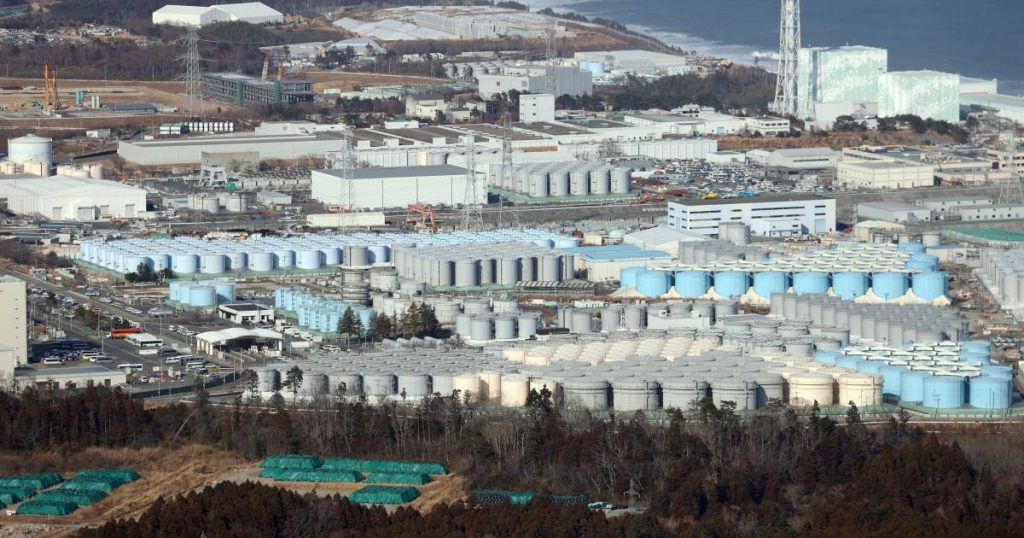Japan plans to discharge more than 1 million tons of radioactive wastewater from the destroyed Fukushima nuclear power plant into the sea. The government announced this today. The decision was not well received by the neighboring countries, China and South Korea.
Water was used, among other things, to cool the nuclear power plant reactor when it was struck by a major earthquake and tsunami in 2011. The cooling water is currently in huge storage tanks. There are now more than a thousand, and it is expected that there will not be enough space over the next year to accommodate more tanks. Every day, about 140 cubic meters of irradiated water are added.
500 Olympic swimming pools
With the current amount of polluted water, about 500 swimming pools of 50 x 25 meters can be filled by comparison. The annual costs of water storage are estimated at 100 billion yen (more than 766 million euros).
Japanese media reported last week All about the plans. Today it is officially confirmed by the government of the Asian country. The unloading will begin in about two years, according to the government, and the whole process will take decades. “On the basis of strict adherence to applicable regulations, we choose to discharge into the ocean,” an official government statement said.
Little impact on health
Contaminated water must be re-filtered to avoid harmful isotopes and will be diluted to meet international standards. Japan ensures that water drainage is safe. The International Atomic Energy Agency feels the same way. Michiyaki Kai, a radiation expert at the Japanese University in Oita, told Agence France-Presse that there is consensus among scientists that “the effect on health is very small.” But according to him, “It cannot be said that the danger is nothing that raises controversy.”
The decision comes three months before the planned Olympic Games in Tokyo. Some events will take place only 60 kilometers from the destroyed nuclear power plant.
Headwinds
China and South Korea have already expressed their concerns about the plan. A South Korean Foreign Ministry official said the Tokyo decision “could directly and indirectly affect the security of our residents and the environment.” The Chinese Foreign Ministry talks about the “extremely irresponsible” decision. According to a spokesman, China urged Japan to “solve the problem of discharging wastewater from the Fukushima Nuclear Power Plant in a reasonable and responsible manner.”
With this decision, the human rights and interests of the people in Fukushima, the rest of Japan and the Asia-Pacific region are completely ignored.
Japanese hunters aren’t keen on that either. They fear that such a measure could be bad for their sector. For example, after the nuclear disaster, South Korea stopped importing fish from the area near Fukushima. “We are told that they will not empty the water into the sea without the support of the fishermen,” Kanji Tachia said on behalf of the local fisheries. According to him, the government has reneged on this promise.
Greenpeace strongly opposes this decision. “With this decision, the human rights and interests of the people in Fukushima, the rest of Japan and the Asia-Pacific region are completely ignored,” the environmental organization said.
Japan was hit by a massive earthquake and tsunami on March 11, 2011. About 100,000 people fled and nearly 19,000 were killed. As a result of the natural disaster, the Fukushima nuclear power plant was damaged. It was the worst nuclear disaster since Chernobyl in 1986.
Unlimited free access to Showbytes? Which can!
Sign in or create an account and don’t miss the chance to star.

“Coffee buff. Twitter fanatic. Tv practitioner. Social media advocate. Pop culture ninja.”











More Stories
Strong increase in gas export pipeline from Norway to Europe
George Louis Bouchez still puts Julie Tatton on the list.
Thai Air Force wants Swedish Gripen 39 fighter jets